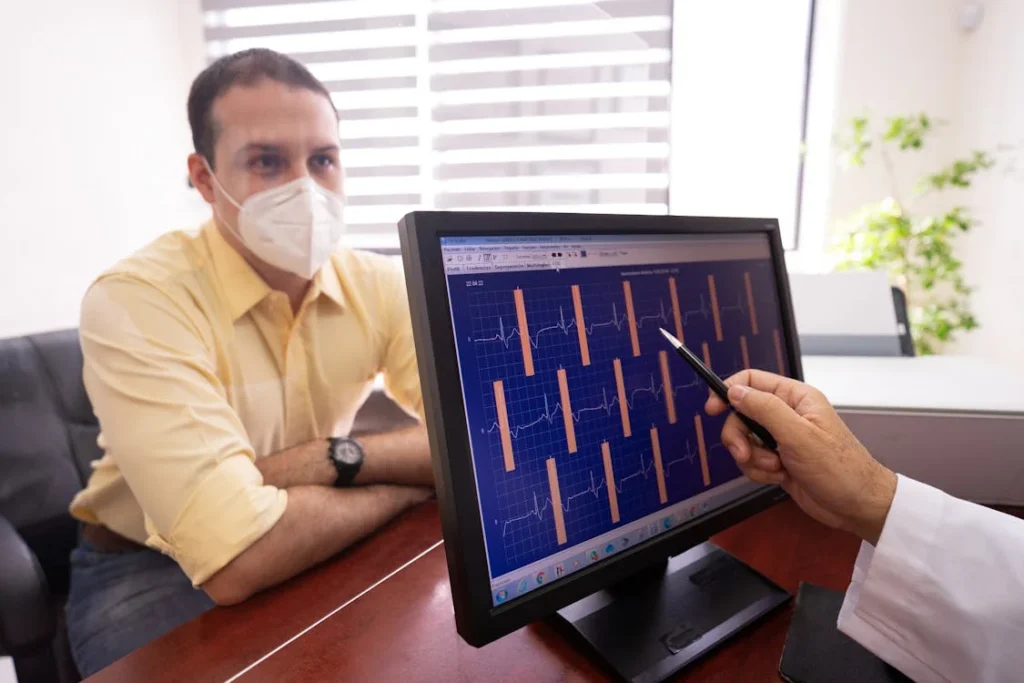Smartwatches have transformed into essential health-monitoring devices, offering features like heart rate tracking, sleep monitoring, and activity logging. Among these features, blood pressure measurement is becoming increasingly popular. However, many users wonder: Do smartwatches measure blood pressure accurately? In this blog post, we will explore the accuracy of blood pressure measurements in smartwatches, how they work, and important considerations when using them for health monitoring.
Best Smartwatches for Blood Pressure Monitoring
If you’re considering a smartwatch for blood pressure measurement, here are some popular options that claim to provide this feature:
| Smartwatch | Key Features | Price Range | Accuracy Level |
|---|---|---|---|
| Samsung Galaxy Watch 5 | Optical sensor, ECG monitoring | $279 – $329 | ★★★★☆ |
| Garmin Venu 2 | Stress tracking, heart rate variability | $349 – $399 | ★★★☆☆ |
| Amazfit Bip U Pro | SpO2 monitoring, built-in GPS | $69 – $79 | ★★☆☆☆ |
| Apple Watch Series 7 | ECG capability, extensive health features | $399 – $749 | ★★★★★ |
| Fitbit Sense | Stress management, SpO2, heart rate variability | $299 – $329 | ★★★★☆ |
Understanding Blood Pressure Measurement
Blood pressure is the force exerted by circulating blood against the walls of the body’s arteries. It is typically expressed as two numbers:
- Systolic Pressure: The pressure in your arteries when your heart beats (the top number).
- Diastolic Pressure: The pressure in your arteries when your heart rests between beats (the bottom number).
How Do Smartwatches Measure Blood Pressure?
Most smartwatches that claim to measure blood pressure use one of the following methods:
1. Optical Sensors
Some smartwatches utilize optical sensors that measure changes in blood volume in your wrist. This method involves shining a light (usually green) into the skin and measuring how much light is absorbed by the blood.
- ✅ Pros: Non-invasive, easy to use.
- ❌ Cons: Accuracy can be variable.
2. Calibration with a Cuff
More accurate blood pressure measurements may be obtained when a smartwatch is calibrated with a traditional blood pressure cuff. Users take a reading with the cuff and then input it into the smartwatch, which uses this reference for future measurements.
- ✅ Pros: Improved accuracy with proper calibration.
- ❌ Cons: Requires an initial setup and calibration.
3. Algorithmic Analysis
Some devices use advanced algorithms that analyze heart rate variability and other factors to estimate blood pressure. These algorithms can provide general trends over time but may not offer real-time accuracy comparable to traditional monitors.
- ✅ Pros: Useful for trend monitoring.
- ❌ Cons: Less accurate for immediate readings.
Accuracy of Blood Pressure Measurements in Smartwatches
The accuracy of blood pressure measurements from smartwatches is a topic of ongoing research. While some models provide reasonable estimates, they generally do not match the accuracy of standard blood pressure monitors. Here’s a comparison:
| Aspect | Smartwatches | Traditional Monitors |
|---|---|---|
| Measurement Method | Optical sensors/Calibration | Cuff-based measurement |
| Accuracy | Varies by device; generally less accurate | High accuracy, clinically validated |
| User Variability | Affected by movement, wrist position | Consistent across users |
| Calibration Needed | Sometimes required | Consistently accurate |
| Ease of Use | Very user-friendly | Requires proper usage |
Factors Affecting Accuracy
- Wrist Position: For accurate readings, the smartwatch must be worn correctly and at heart level. If the wrist is too high or too low, readings can be skewed.
- User Movement: Movement during measurement can cause fluctuations in readings, leading to inaccurate results.
- Calibration: Proper calibration with a traditional cuff can enhance accuracy but is often overlooked.
- Skin Temperature: Cold or damp skin can affect sensor performance and lead to erroneous readings.
- Health Conditions: Conditions such as arrhythmias can impact the accuracy of optical measurements in smartwatches.
Limitations of Blood Pressure Measurement in Smartwatches
- Not a Substitute for Medical Devices: Smartwatches are not replacements for traditional blood pressure monitors. If you have high blood pressure or other cardiovascular concerns, consult with a healthcare professional for regular monitoring.
- Lack of Clinical Validation: Most smartwatches have not undergone rigorous clinical trials to validate their blood pressure measurement capabilities.
- Trend Monitoring vs. Accurate Measurements: Smartwatches are better suited for tracking trends in blood pressure over time rather than providing accurate, immediate readings.
Recommendations for Users
- Use Smartwatches for Trends: While smartwatches may not provide clinically accurate readings, they can still be helpful for monitoring trends in blood pressure over time. Regular tracking can help identify patterns and assist in lifestyle modifications.
- Combine with Traditional Devices: For those needing precise blood pressure management, combining smartwatch data with a clinically validated blood pressure monitor can provide a more comprehensive view of your health.
- Consult Healthcare Professionals: Always discuss any concerns regarding blood pressure with your doctor. They can provide guidance on the best monitoring devices for your needs.
Conclusion
While smartwatches with blood pressure measurement capabilities are convenient and user-friendly, their accuracy can vary significantly from traditional blood pressure monitors. They are best used as supplementary devices for tracking general trends rather than as primary monitoring tools.
When selecting a smartwatch, consider your specific needs, and remember that regular consultations with healthcare professionals are essential for effective blood pressure management. As technology evolves, we can expect improvements in the accuracy and reliability of these devices, making health monitoring even more accessible in the future.
References
American Heart Association. (n.d.). Blood Pressure Measurement. Retrieved from heart.org
Cleveland Clinic. (2023). Can Smartwatches Accurately Measure Blood Pressure? Retrieved from clevelandclinic.org
Harvard Health Publishing. (2021). Can Smartwatches Accurately Measure Blood Pressure? Retrieved from health.harvard.edu
Mayo Clinic. (2022). Blood Pressure Monitoring: What You Need to Know. Retrieved from mayoclinic.org
National Heart, Lung, and Blood Institute. (n.d.). How Is Blood Pressure Measured? Retrieved from nhlbi.nih.gov



